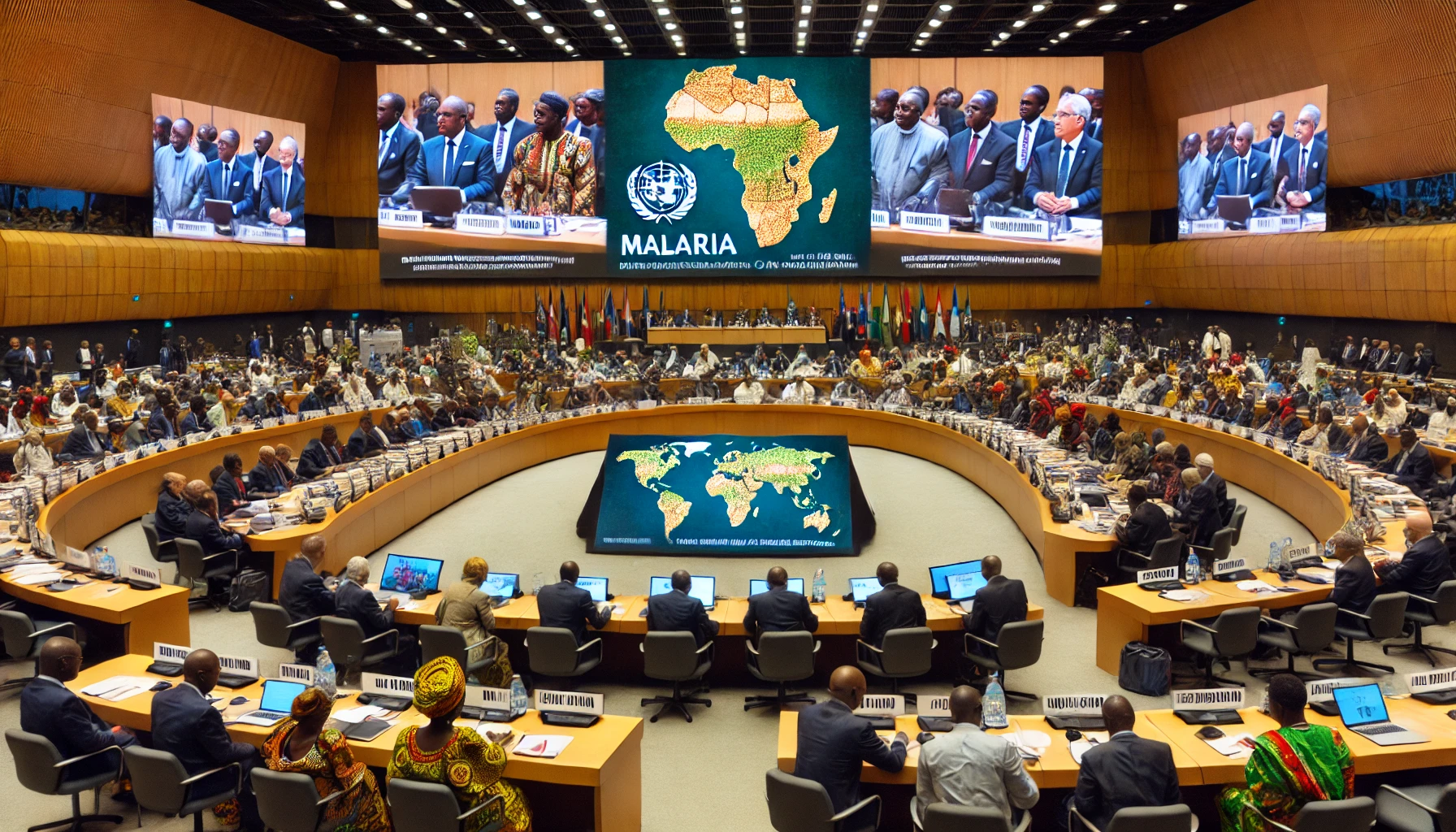Malaria Eradication in Africa: Political Leadership and Innovation Drive 2030 Goals
The Malaria Ministerial Conference in Yaounde, co-hosted by WHO and Cameroon, renewed commitments to combat malaria in Africa through political leadership, innovation, and multisectoral collaboration. The conference emphasized the importance of funding, data-driven strategies, and community engagement to achieve the 2030 global malaria targets.

The report from the Malaria Ministerial Conference held in Yaounde, Cameroon, co-hosted by the World Health Organization (WHO) and the Government of Cameroon, underscores the renewed commitment to addressing malaria in Africa. The WHO, alongside other key global health institutions and research partners, organized this high-level meeting to reignite efforts to curb the rising tide of malaria cases and deaths in the region. With over 400 stakeholders in attendance, including ministers from countries with the highest malaria burdens, the conference aimed to galvanize political will, scientific innovation, and community engagement to combat the disease, particularly in sub-Saharan Africa, where the malaria burden remains disproportionately high.
Persistent Malaria Burden Despite Earlier Progress
Malaria has been a persistent health challenge in Africa, with the continent bearing 94% of global malaria cases and 95% of malaria deaths, according to the latest WHO data. Despite earlier successes between 2000 and 2015, when malaria cases were significantly reduced, the progress has stalled in recent years. In response to this stagnation, the WHO, along with the RBM Partnership to End Malaria, launched the “High Burden to High Impact” (HBHI) initiative in 2018. This initiative targets 11 countries, including Nigeria, Uganda, and the Democratic Republic of Congo, which together account for over 70% of global malaria cases. However, the implementation of HBHI has faced setbacks, particularly due to the COVID-19 pandemic, economic downturns, and regional conflicts, all of which have exacerbated the already fragile health systems in these nations.
Yaounde Declaration: A Unified Commitment
At the Yaounde conference, ministers from six HBHI countries Burkina Faso, Cameroon, Mali, Nigeria, Sudan, and Uganda signed the "Declaration for accelerated malaria mortality reduction in Africa." This pivotal document emphasizes the collective resolve that no one should die from malaria given the tools and interventions currently available. The Declaration sets out seven key commitments to accelerate the reduction of malaria mortality, including enhancing political leadership, ensuring data-driven decision-making, improving technical guidance, and promoting multisectoral collaboration. It calls for stronger health systems, more robust coordination across different sectors, and greater accountability to ensure that malaria control efforts are sustained and effective.
Addressing Financial Gaps in the Fight Against Malaria
The ministers pledged to reinvigorate their national malaria control strategies by utilizing local data to inform decisions, ensuring better targeting of interventions, and mobilizing resources from both domestic and international partners. One of the critical discussions centered on the financial shortfall in global malaria funding. In 2022, the world raised only 4.1 billion dollars against a target of 7.8 billion dollars, leaving a significant gap that threatens ongoing efforts. The ministers agreed that countries must increase their domestic funding for malaria programs while simultaneously seeking predictable international financial support. This dual approach is seen as essential for ensuring that malaria control efforts are not disrupted and that they reach the populations most in need.
Integrating Malaria Control with Broader Health Goals
A key aspect of the conference was the focus on the integration of malaria control into broader health and development agendas, particularly universal health coverage (UHC) and the Sustainable Development Goals (SDGs). The ministers recognized that aligning malaria interventions with UHC initiatives could help strengthen health systems and ensure that malaria services are available to the most vulnerable populations, including pregnant women and children under five, who account for the majority of malaria deaths. By embedding malaria control within the broader health system, countries can optimize the use of resources, improve service delivery, and ensure that malaria interventions are sustainable over the long term.
Innovation and Accountability: Key to Future Success
Innovation was also a prominent theme at the conference, with discussions on the role of new tools and technologies in malaria control. In 2021, the WHO recommended the use of the RTS,S/AS01 malaria vaccine in children, and in 2023, a second vaccine, R21/Matrix-M, was approved. These vaccines have already shown significant promise in reducing child mortality and hospitalizations in African countries where they have been piloted. The introduction of these vaccines, alongside other interventions such as insecticide-treated bed nets and seasonal malaria chemoprevention, is expected to have a profound impact on malaria control efforts. However, the ministers also acknowledged the challenges in scaling up vaccine distribution and the importance of securing sufficient supplies to meet the needs of malaria-endemic countries.
A critical takeaway from the conference was the need for sustained political commitment and accountability. The Yaounde Declaration calls for the establishment of robust monitoring and evaluation systems to track progress and ensure that the commitments made by governments are followed through. The Declaration also emphasizes the importance of community engagement, recognizing that local communities play a vital role in the success of malaria interventions. By involving communities in the design and implementation of malaria control programs, governments can ensure that interventions are culturally appropriate, well-received, and more likely to succeed.
The conference concluded with a call to action for all stakeholders governments, international donors, research institutions, and civil society to redouble their efforts to eliminate malaria. The ministers reaffirmed their commitment to achieving the 2030 global malaria targets and underscored the urgency of acting now to prevent further loss of life. The Yaounde Declaration marks a significant step forward in the fight against malaria in Africa, but its success will depend on the continued dedication of all parties involved, from political leaders to local communities, in ensuring that the tools and strategies available are effectively utilized to save lives.
- FIRST PUBLISHED IN:
- Devdiscourse










